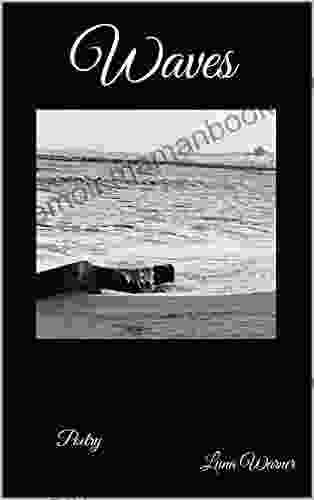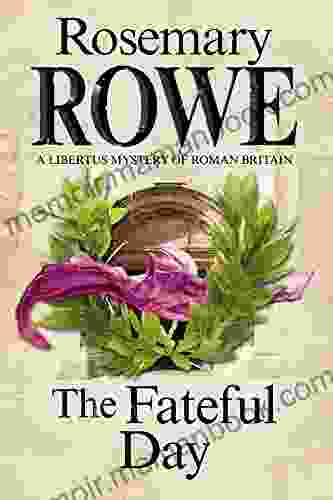Waves of Imagination: A Critical Examination of Jonathan Bate's "The Song of the Earth"

: The Interwoven Threads of Nature and Imagination
In an era marked by profound environmental concerns, Jonathan Bate's acclaimed collection of poems, "The Song of the Earth", emerges as a significant contribution to contemporary ecocriticism. Through its lyrical exploration of the intricate relationship between nature and the human imagination, Bate invites us to reflect on the transformative power of poetry in shaping our understanding of the natural world and our place within it.
Bate, a renowned literary critic and professor of English literature at the University of Oxford, has long been immersed in the study of ecocriticism, a field of inquiry that examines the ways in which literature interacts with the environment. In "The Song of the Earth," he weaves together his scholarly insights with his own poetic sensibilities, crafting a collection that is both intellectually stimulating and deeply evocative.
5 out of 5
| Language | : | English |
| File size | : | 11664 KB |
| Text-to-Speech | : | Enabled |
| Screen Reader | : | Supported |
| Enhanced typesetting | : | Enabled |
| Print length | : | 118 pages |
Section 1: The Pastoral Tradition and the Poetics of Place
Bate's poems are rooted in the pastoral tradition, a literary genre that celebrates the beauty and serenity of the countryside. However, he infuses this traditional form with a distinctly modern environmental consciousness. In ng so, he challenges the romanticized view of nature often associated with the pastoral and instead presents a more nuanced and ecologically informed perspective.
Through vivid imagery and evocative language, Bate captures the essence of specific landscapes, from the rolling hills of the Cotswolds to the rugged coastline of Cornwall. He explores the ways in which human history, culture, and industry have shaped these environments and, in turn, how the landscape itself has influenced the imagination of those who inhabit it.
In the poem "Near Dunster," Bate depicts the landscape of Somerset as "a palimpsest of memory," revealing the layering of human presence over time. The ancient hillside, once home to prehistoric settlements, now bears the traces of medieval fortifications and modern agriculture. By weaving together these historical threads, Bate highlights the interconnectedness of human and natural history.
Section 2: The Romantic Imagination and the Sublimity of Nature
Bate also draws upon the Romantic tradition of poetry, which celebrated the power of the imagination to transcend the boundaries of the ordinary. In "The Song of the Earth," he captures the sublime beauty and awe-inspiring vastness of the natural world, evoking a sense of wonder and humility in the reader.
In the sonnet "The Sea," Bate confronts the immensity of the ocean, describing its "unquiet heart" and "unsearchable chasms." The poem's rhythmic structure echoes the ceaseless motion of the waves, creating a visceral sense of the sea's raw power and untamed nature.
Through the lens of the Romantic imagination, Bate explores the transformative effects of nature on the human psyche. In "The Falls," he depicts an encounter with a waterfall as a moment of transcendence, where the boundaries between self and other dissolve and the individual becomes immersed in the rhythms and energies of the natural world.
Section 3: Ecocritical Perspectives and the Poetics of Sustainability
While Bate's poems delve into the aesthetic and imaginative dimensions of nature, they also engage with pressing environmental issues. He explores the consequences of human consumption, pollution, and climate change on the natural world, urging us to reconsider our relationship with the planet.
In "The Anthropocene Poem," Bate confronts the legacy of human impact on the environment, acknowledging the ways in which our actions have shaped the very fabric of the Earth. The poem is a powerful indictment of the destructive consequences of unchecked industrialization, yet it also offers a glimmer of hope through its emphasis on the resilience of nature.
Through its ecocritical perspective, "The Song of the Earth" challenges conventional notions of progress and development, and invites us to re-evaluate our priorities and strive for a more sustainable way of living.
Section 4: The Poetic Form and the Harmony of Nature
Bate's exploration of nature and the imagination is not only expressed through the content of his poems but also through their poetic form. He employs a wide range of traditional and experimental forms, each of which serves to enhance and complement the meaning of the poems.
In "The Meadow," Bate uses the form of the villanelle to capture the cyclical nature and interconnectedness of life. The poem's six stanzas repeat the same pattern, creating a sense of rhythm and continuity that mirrors the natural processes of growth, decay, and rebirth.
Bate also incorporates elements of ekphrasis, the description of a work of art, into his poems. In "After Brueghel," he evokes the famous painting "The Hunters in the Snow" through verse, blurring the boundaries between visual art and poetry. Through this hybrid form, Bate highlights the transformative power of imagination and the ways in which art can both reflect and shape our understanding of the natural world.
: A Poetic Call for Environmental Stewardship
In "The Song of the Earth," Jonathan Bate presents a powerful and deeply moving collection of poems that explore the complex relationship between nature and the human imagination. Through his lyrical exploration of the pastoral tradition, the Romantic sublime, and ecocritical perspectives, Bate invites us to reflect upon our place within the natural world and to reconsider our responsibilities as stewards of the planet.
Bate's poetry is not merely a celebration of nature's beauty, but also a call to action. It urges us to embrace a more sustainable way of living and to cultivate a deeper appreciation for the interconnectedness of all life. Through its evocative imagery, insightful commentary, and innovative use of poetic form, "The Song of the Earth" stands as a significant contribution to contemporary ecocritical discourse and a reminder of the transformative power of poetry in shaping our understanding of the natural world.
5 out of 5
| Language | : | English |
| File size | : | 11664 KB |
| Text-to-Speech | : | Enabled |
| Screen Reader | : | Supported |
| Enhanced typesetting | : | Enabled |
| Print length | : | 118 pages |
Do you want to contribute by writing guest posts on this blog?
Please contact us and send us a resume of previous articles that you have written.
 Top Book
Top Book Novel
Novel Fiction
Fiction Nonfiction
Nonfiction Literature
Literature Paperback
Paperback Hardcover
Hardcover E-book
E-book Audiobook
Audiobook Bestseller
Bestseller Classic
Classic Mystery
Mystery Thriller
Thriller Romance
Romance Fantasy
Fantasy Science Fiction
Science Fiction Biography
Biography Memoir
Memoir Autobiography
Autobiography Poetry
Poetry Drama
Drama Historical Fiction
Historical Fiction Self-help
Self-help Young Adult
Young Adult Childrens Books
Childrens Books Graphic Novel
Graphic Novel Anthology
Anthology Series
Series Encyclopedia
Encyclopedia Reference
Reference Guidebook
Guidebook Textbook
Textbook Workbook
Workbook Journal
Journal Diary
Diary Manuscript
Manuscript Folio
Folio Pulp Fiction
Pulp Fiction Short Stories
Short Stories Fairy Tales
Fairy Tales Fables
Fables Mythology
Mythology Philosophy
Philosophy Religion
Religion Spirituality
Spirituality Essays
Essays Critique
Critique Commentary
Commentary Glossary
Glossary Bibliography
Bibliography Index
Index Table of Contents
Table of Contents Preface
Preface Introduction
Introduction Foreword
Foreword Afterword
Afterword Appendices
Appendices Annotations
Annotations Footnotes
Footnotes Epilogue
Epilogue Prologue
Prologue Jerry Ellis
Jerry Ellis Kindle Comixology
Kindle Comixology Ralf Singh
Ralf Singh Hardy Lebel
Hardy Lebel Julie Tepperman
Julie Tepperman Andrew Hallam
Andrew Hallam Joan Druett
Joan Druett Randy Sarafan
Randy Sarafan G C Cooper
G C Cooper Glenn Mcgoldrick
Glenn Mcgoldrick Kerry Hullet
Kerry Hullet Derek Hansen
Derek Hansen Grant Gillard
Grant Gillard Raymond Z Gallun
Raymond Z Gallun Bradley Bleckwehl
Bradley Bleckwehl Daniel Weinbren
Daniel Weinbren Kevin B Eastman
Kevin B Eastman Dave Matthes
Dave Matthes Tiffanie Debartolo
Tiffanie Debartolo Andrew James
Andrew James
Light bulbAdvertise smarter! Our strategic ad space ensures maximum exposure. Reserve your spot today!
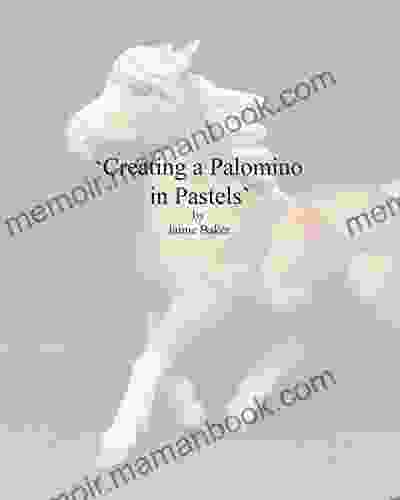
 Victor TurnerCreating Palomino In Pastels: A Comprehensive Guide to Achieving Realistic...
Victor TurnerCreating Palomino In Pastels: A Comprehensive Guide to Achieving Realistic...
 Jake PowellTake My Hand, a Masterpiece by Bradley Bleckwehl: A Journey into the Depths...
Jake PowellTake My Hand, a Masterpiece by Bradley Bleckwehl: A Journey into the Depths...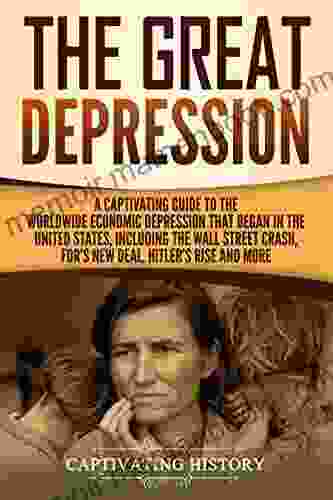
 Ernest HemingwayCaptivating Guide to the Worldwide Economic Depression That Began in the US
Ernest HemingwayCaptivating Guide to the Worldwide Economic Depression That Began in the US
 Austin FordMastering the Art of Scrabble: A Comprehensive Guide to Becoming a Scrabble...
Austin FordMastering the Art of Scrabble: A Comprehensive Guide to Becoming a Scrabble... Louis HayesFollow ·14.8k
Louis HayesFollow ·14.8k Cade SimmonsFollow ·11.1k
Cade SimmonsFollow ·11.1k Herbert CoxFollow ·5k
Herbert CoxFollow ·5k Dean ButlerFollow ·18.4k
Dean ButlerFollow ·18.4k Clayton HayesFollow ·13.4k
Clayton HayesFollow ·13.4k Hunter MitchellFollow ·18k
Hunter MitchellFollow ·18k Dylan MitchellFollow ·6.6k
Dylan MitchellFollow ·6.6k John Dos PassosFollow ·14.9k
John Dos PassosFollow ·14.9k
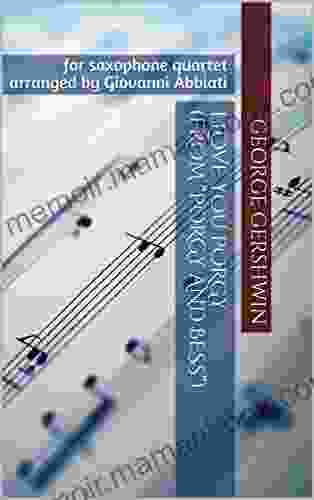
 Robert Browning
Robert BrowningGeorge Gershwin's "Love You Porgy" from Porgy and Bess: A...
George Gershwin's "Love You Porgy" is an...

 Gary Reed
Gary ReedFitness Exercise Motivation and Goals: Build Lean Muscle...
Embark on a...

 Terence Nelson
Terence NelsonEat More, Train Less, and Get Lean: The Mr. America...
In today's fast-paced world, achieving a...
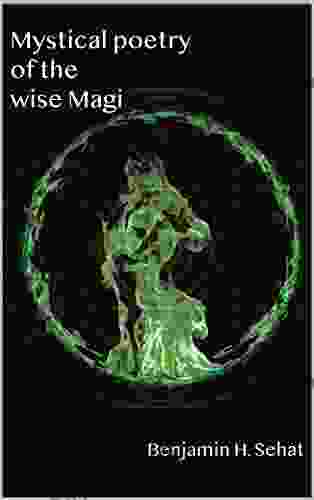
 J.D. Salinger
J.D. SalingerThe Mystical Poetry of the Wise Magi: Interpreting the...
In the realm of...

 Blake Bell
Blake BellStep By Step Instructions To Maximize Cryptocurrency...
Cryptocurrency...
5 out of 5
| Language | : | English |
| File size | : | 11664 KB |
| Text-to-Speech | : | Enabled |
| Screen Reader | : | Supported |
| Enhanced typesetting | : | Enabled |
| Print length | : | 118 pages |


